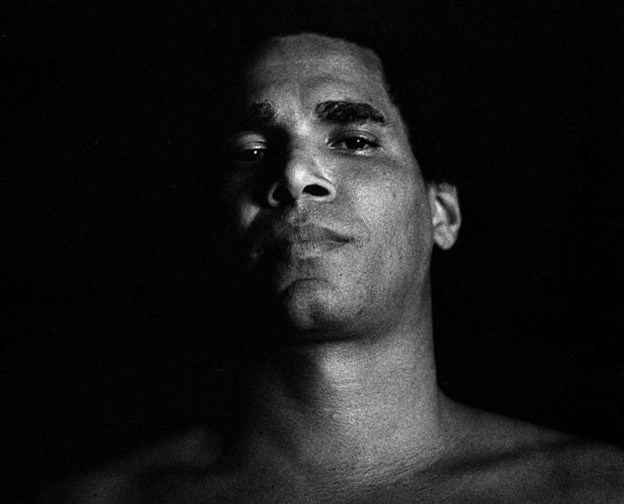
Luis Manuel Otero: “You wake up at six in the morning with a bell that sounds like the cry of a madman”
By Carlos Manuel Alvarez (El Estornudo)
HAVANA TIMES – More than two and a half years have passed, half of his sentence, since the jailing of artist Luis Manuel Otero, one of the most well-known Cuban political prisoners. He was subsequently tried by the Municipal Court of Marianao, Havana, and sentenced to five years in prison for the fabricated crimes of disrespect to patriotic symbols, contempt of authority, and public disorder.
From the maximum-security prison of Guanajay, Artemisa province, Otero has continued to deliver, now with the unique material of loneliness and the passage of time, artistic interventions like “Portrait in charcoal of Schrödinger’s cat”, where he sells and distributes his days in prison. In his cell, Otero draws as much as he can, permeated by the moods and the forlorn faces of other inmates in a penitentiary that the artist describes as “a cathedral of evil”.
For more than a week, there has been no news from him, but up until March 14th, through the occasional phone calls he is allowed to make, with the help of curator and friend Claudia Genlui, we were able to converse with the leader of the San Isidro Movement. His voice, kidnapped, preserves the eloquence and the impetus that reminded a country of that phrase repeated by the furious youth of the French May: “tout est dans tout et tout est politique” (everything is in everything and everything is political).
Tell me about a day in prison, what are the routines from morning until night?
I say it in a text I’m working on now. I say that this is like a kind of theater set, where every day is the same. You wake up at six in the morning and breakfast is disgusting. Imagine, in a country where children don’t have milk right now, they don’t have bread, what can there be left for a prisoner? Lunch is at eleven in the morning and dinner is at six in the afternoon, all in wretched conditions. I draw and paint a lot, try to find something new. You know I’m a guy who gets bored quickly. Fortunately, I still come up with things.
You chat for a while with a prisoner, discuss some topic, like how many eggs an ostrich lays, for example. I try to watch some TV, find a program that interests me. The other option is to become a soap opera fan and cry so that the good guy isn’t killed or so that the bad guy doesn’t win and things like that. You have an hour of yard time a day with a little sun, which is also another scenario. In the end, there’s a moment within three years that is the same, the cycle is the same. You’re still being watched. If you talk on the phone twice a week, they watch your phone. And you know you’re being watched every minute, everything you say or talk about.
The other thing is art. I paint, I have images of all the faces. You wake up at six in the morning with a bell that sounds like the cry of a madman. There’s a light bulb. You sleep with the white light on all night. Mind you, the light bulb is sometimes bad and sometimes good, because that’s the moment when you’re alone, where no one talks, where no one says a crazy thing that if someone killed someone, that if someone stabbed someone, that if someone stole something. You’re alone with your demons, with all the spirits that peek into your head, and there you take advantage. If there wasn’t the light bulb, it would be totally dark, but when it’s time to sleep, you also wish the light bulb would go out. It’s a great dichotomy.
That’s my day-to-day in here. Images that come to mind, sad faces, depressed people, people crushed, people without hope, many young people who today are put away or they ask for ten, fifteen, twenty years. All those faces, all that energy in a space like this, which is about to reach a hundred years of suffering, you have to channel it somewhere. At some point, through the paintings of these individuals, which get darker every day, you will be able to see what I mean.
What do prisoners usually eat?
Well, the food is pathetic. Rice occasionally… Look, like two days ago they gave a little fish, but we’re talking about them giving it once a month. The other thing is a pasta, something that has no taste or smell, or a tuber and a soup that also has no smell or anything. That’s lunch and dinner. At breakfast, they used to give bread, but now with the crisis… I repeat, in a country where there is no bread for chi


